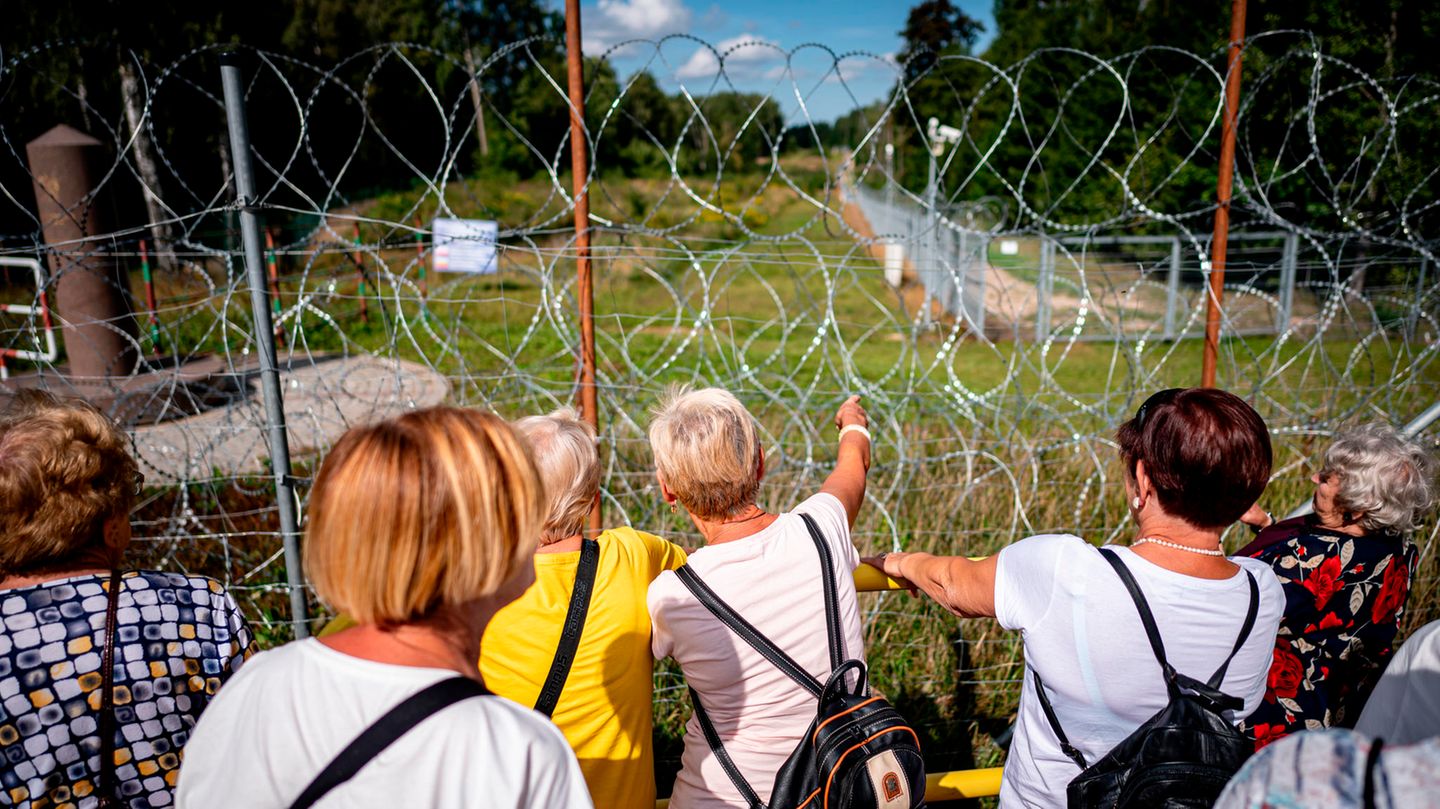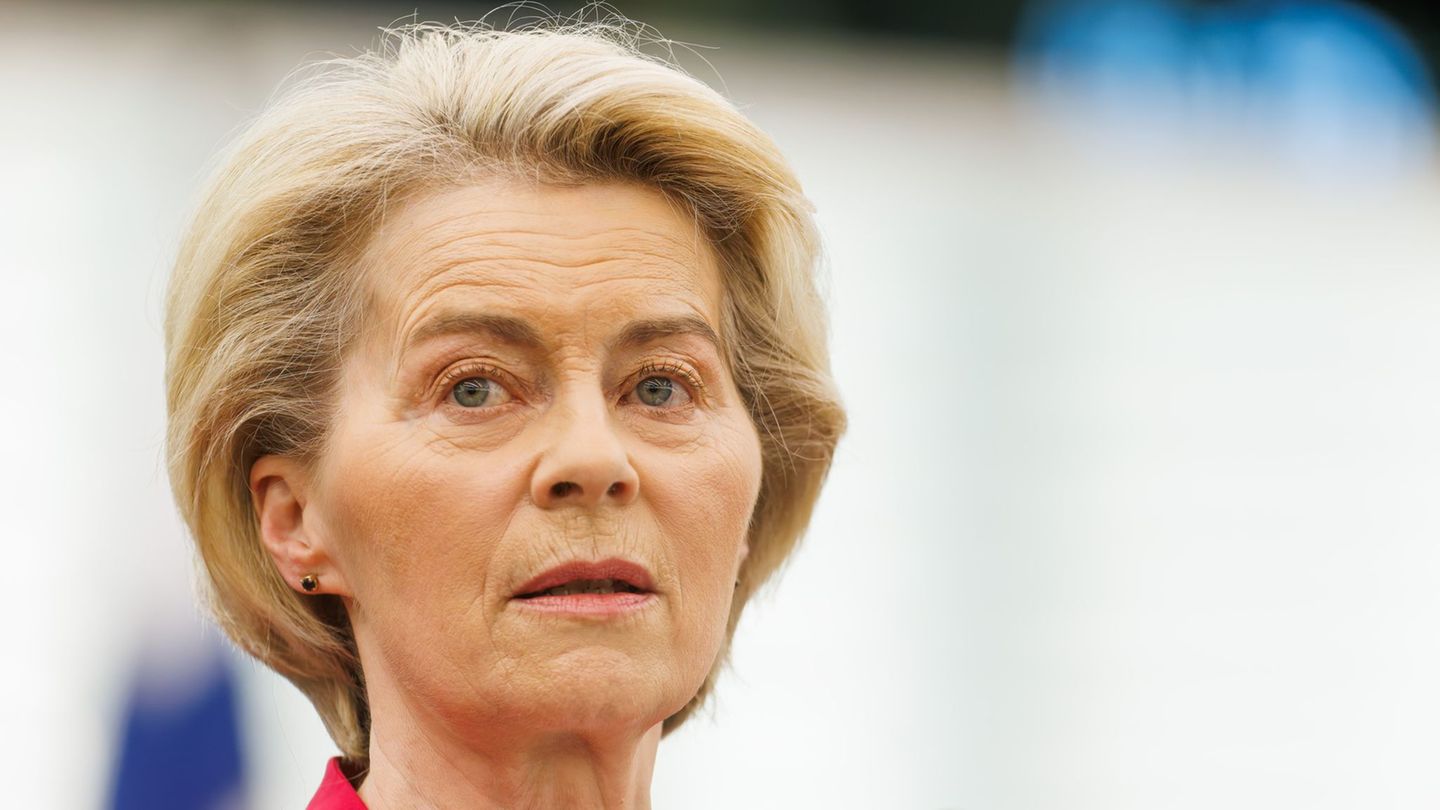The border area between Poland and Lithuania is considered a potential flashpoint in the event of a confrontation between Russia and NATO. Poland is rearming, Lithuania is to get a Bundeswehr brigade. But what is the mood in the place?
The Lithuanian border guard drives the off-road vehicle along a dusty dirt road. Here, on the outskirts of the small border town of Kybartai, Russia is within reach: directly behind the garages of a prefabricated housing estate runs the border between the EU and NATO member Lithuania and the Russian Baltic Sea exclave of Kaliningrad. In the past, the border was unfortified in some places. But in 2021, before Russia’s war of aggression against Ukraine began, Lithuania erected a two-meter-high fence with razor-sharp NATO wire on top. “Before the war, we still had cooperation with the Russian border guard in some areas. Now that’s over,” says border guard spokeswoman Lina Laurinaityte-Grigiene.
Kybartai lies in the so-called “Suwalki Gap”, a strategically important area for NATO’s eastern flank. The Baltic states and Poland fear that something could be brewing here. NATO uses the term “Suwalki Gap” to describe a strip of land just 70 kilometers wide that lies between Belarus and Kaliningrad and extends to the left and right of the Lithuanian-Polish border. The geographically not precisely defined area is named after the Polish town of Suwalki. The concern: With an advance here, Russia could cut off the Baltic states from the other NATO countries and thus test the West’s willingness to defend themselves. A horror scenario.
The border with Russia is in sight
It is so quiet at Lake Wystiter that you can hear the fish jumping out of the water and snapping at insects. A guesthouse offers guests a sandy beach, a lake-view sauna, and outdoor wood-burning hot tubs. Only a sign warns swimmers not to swim beyond the white bars on the lake’s wide expanse of water. That’s where Lithuania ends and Russia begins. The village of Vistytis is also located in the “Suwalki Gap”. Is this really the “most dangerous place in the world,” as US media claims? Pension landlord Vilmantas Arbatauskas laughs. “Everything is peaceful here, everything is good. The tourists from Poland, Lithuania and Germany continue to come.”
But Lithuania feels threatened. The small country with 2.8 million inhabitants looks with growing unease at its neighboring countries: Russia and its ally Belarus. In order to support its NATO partner, Germany wants to station around 4,000 Bundeswehr soldiers in the country as an independent, combat-ready unit. Plans for stationing the brigade should be developed by the end of the year.
In Poland, nervousness has increased since many Wagner fighters took up residence in neighboring Belarus following the Wagner Army’s failed uprising against Moscow’s military leadership. According to Russian authorities, mercenary boss Yevgeny Prigozhin died in a plane crash in August.
The Ukraine war in numbers
War costs: 250 billion euros, refugees: 23 million, dead civilians: 9,000
10,000 soldiers are to be stationed in Poland’s border region with Belarus. “Our aim is to deter the aggressor so that he does not dare to attack Poland,” Defense Minister Mariusz Blaszczak said recently. US defense expert Ian Brzezinski from the Atlantic Council think tank recently advised NATO to hold an exercise with air, sea and land forces in the Suwalki Gap.
“Russia will not attack NATO”
The former commander of the Polish land forces, General Waldemar Skrzypczak, however, considers the likelihood of a Russian advance to be low. The remote area has many lakes, rivers, forests and hills. “This is very difficult terrain for any army to carry out an attack.” In addition, all Russian troops are currently involved in the war in Ukraine. “The Russians currently do not have the potential to launch a military operation against NATO.” The situation is similar at the alliance headquarters in Brussels.
The people in Suwalki itself are divided. The small Polish town that gave the corridor its name makes a sleepy impression. “I’ve been scared lately. And if the Russians attack, what will we do and where should we flee?” said Ewelina, a mother of two children. An older man is sitting in an ice cream parlor in the pedestrian zone. “I’m not afraid at all,” says retired math teacher Jan (66), licking his lemon ice cream. “Russia won’t attack NATO. That’s more propaganda than a real threat.”
Source: Stern
I have been working in the news industry for over 6 years, first as a reporter and now as an editor. I have covered politics extensively, and my work has appeared in major newspapers and online news outlets around the world. In addition to my writing, I also contribute regularly to 24 Hours World.




